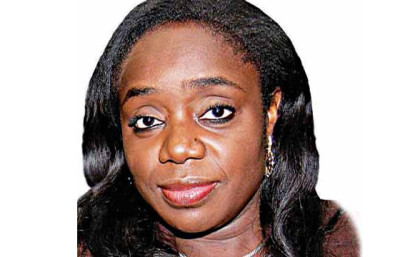
The Federal Government has sold N242.38bn ($1.22bn) worth of three months to one year Treasury bills at higher yields than in its previous auction, the Central Bank of Nigeria has said.
The CBN raised N50bn more than it initially planned, increasing the amount of six-month paper auctioned from N30bn to N80bn.
It sold N45.17bn of three-month paper at 4.95 per cent, up from 4.29 per cent at a sale on January 20.
The bank sold N80bn of six-month debt at 7.97 per cent against 7.59 per cent, while it sold N117.21bn of one-year paper at 9.49 per cent compared with 9.32 per cent.
The total subscription stood at N400.82bn, compared with N288.98bn.
It stated that the three-month bills closed at 4.59 per cent on the secondary market on Wednesday, the six-month traded at 7.87 per cent, while the one year paper closed at 8.45 per cent.
The Federal Government had late last month sold N195.95bn ($975m) in Treasury bills with maturities from three months to one year in its second auction of the year, at higher yields than previously.
The bank sold N36.78bn of three-month paper at 4.29 per cent, up from four per cent at a sale on January 6, according to Reuters.
It also sold N39.17bn of six-month debt at 7.59 per cent against 6.99 per cent, and N120bn of one-year paper at 9.32 per cent compared with 8.05 per cent.
Demand summed up to N288.98bn compared with N311.5bn last time.
At its first action this year in January, the Federal Government sold N136.24bn ($684.67m) in Treasury bills with maturities from three months to one year. The T-bills were also sold at higher yields than previously.
The CBN sold N55.4bn of three-month paper at four per cent, up from 3.62 per cent, at a sale on December 23, 2015.
It also sold N25bn of six-month debt at 6.99 per cent against 6.19 per cent, and N55.84bn of one-year paper at 8.05 per cent compared with 7.45 per cent. The total demand stood at N311.5bn, compared with N226.97bn the previous time.
The country issues T-bills twice-monthly to fund the government’s budget deficit and manage liquidity in the banking system.
The Debt Management Office had in December last year stated that the country was in a strong standing to raise funds from the bond market to finance any deficit from the 2016 budget if so required.
The agency stressed that the Nigerian bond market had the capacity to bridge the funding gap in the budget.
The Director-General, DMO, Dr. Abraham Nwankwo, said the slump in crude oil prices in the international market had made a deficit budget inevitable this year, adding that the DMO was prepared to borrow on behalf of the government to fund the deficit.
Nwankwo dismissed the fear in some quarters that the government might not be able to borrow from the bond market to finance any shortfall in the budget because of the recent delisting of Nigeria from the JPMorgan Bond Index.
END

Be the first to comment